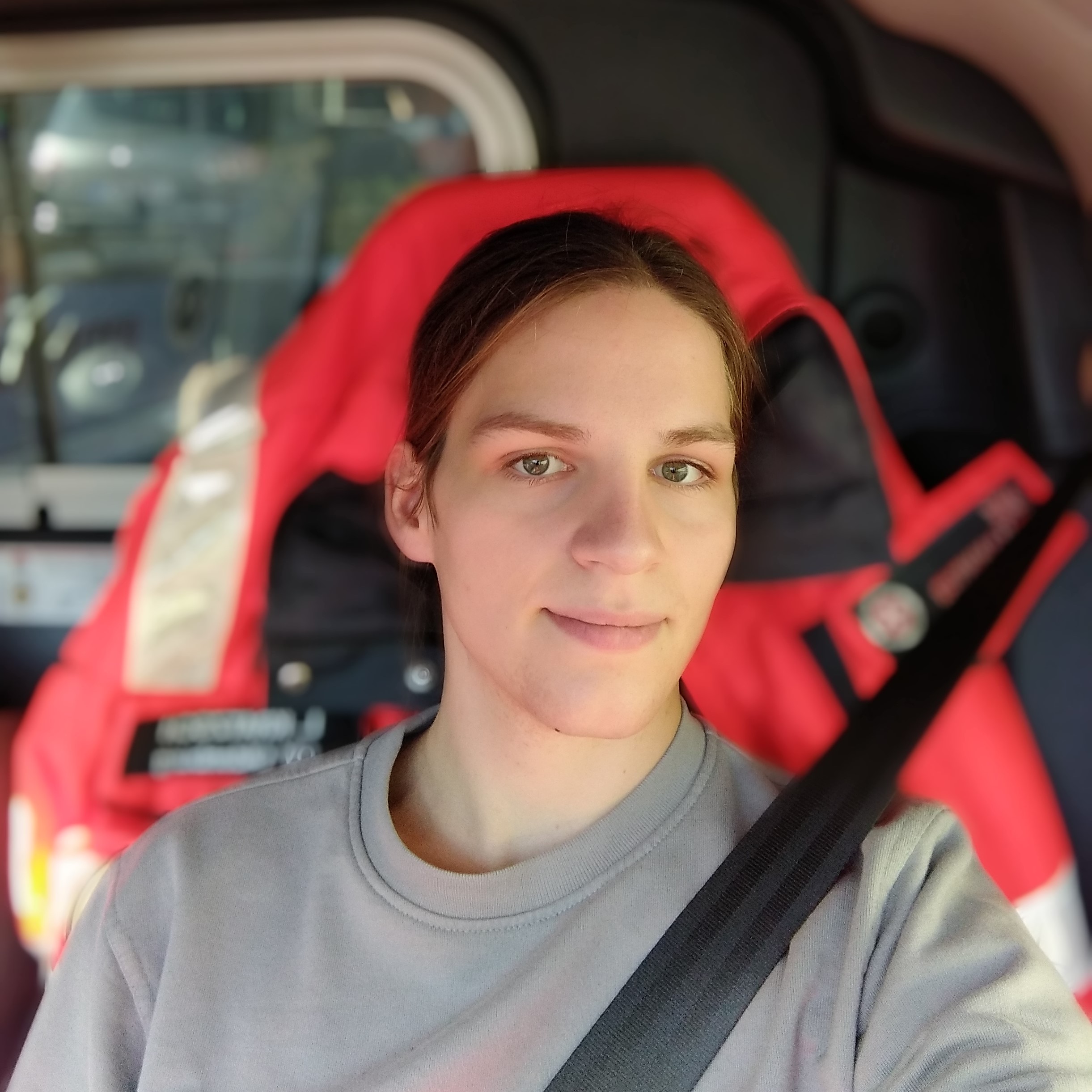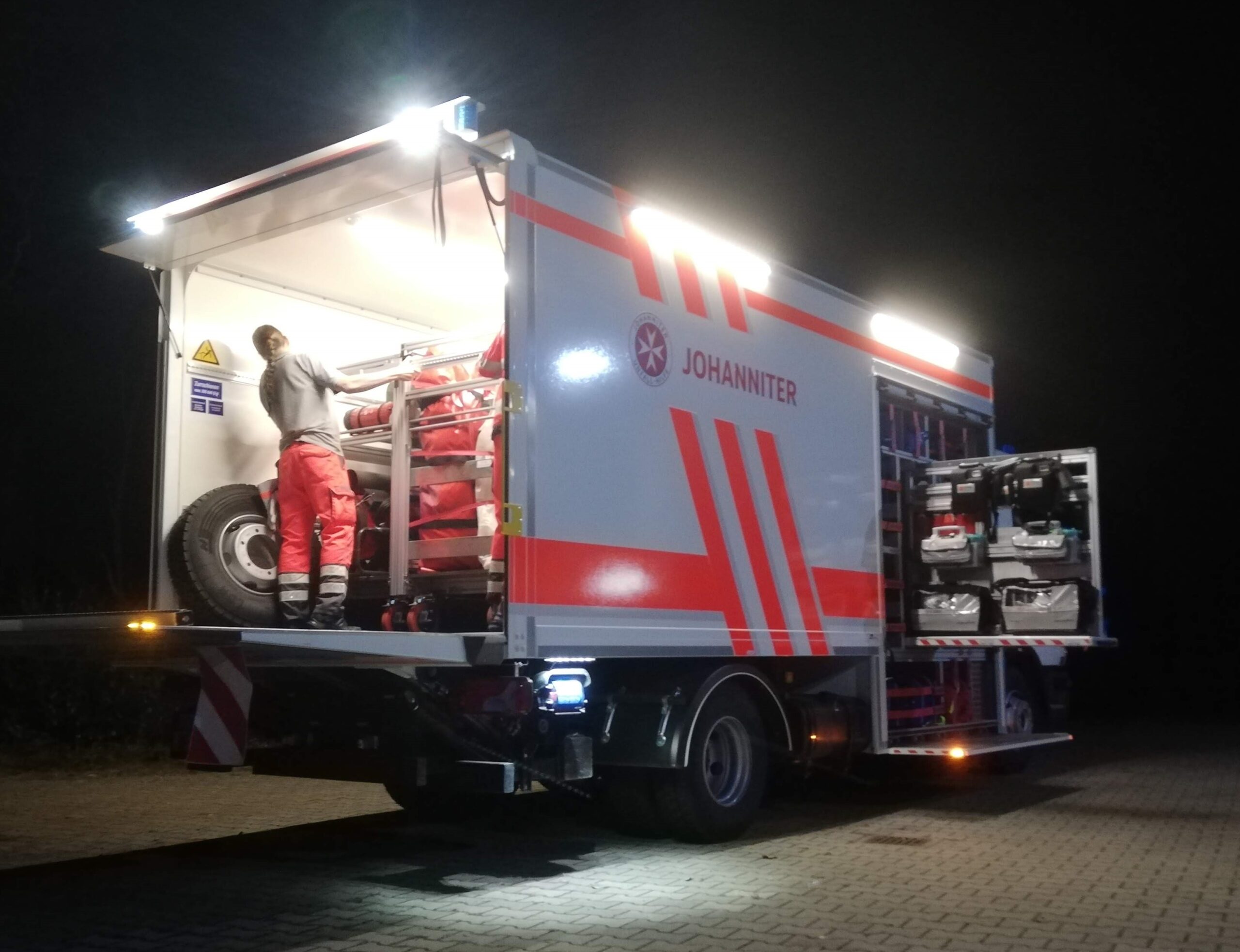19.08.2023 | Interviews
Today we’re talking to Luna Kratzsch – for the second time!
In 2021, we met Luna for our video podcast “Freiwillig busy”. Back then, she told us – together with Stella from the German Red Cross – about her volunteer work as a paramedic at Johanniter-Unfall-Hilfe. Shortly after the podcast, it was clear that we had to meet again! Now it worked out and we were able to discuss many exciting topics in depth – from diversity in volunteering to dealing with mental illness and personal development. Luna herself is affected by depression and borderline personality disorder. In this interview, she reveals how her experience of dealing with mental illness can be useful in volunteering.
 Hello Luna, welcome again! In 2021, we met up with Stella and you for the podcast recording. How have you been at Johanniter since then?
Hello Luna, welcome again! In 2021, we met up with Stella and you for the podcast recording. How have you been at Johanniter since then?
Very well! The podcast has actually led to a few more things. For example, I have passed on my knowledge about mental illness and how we as helpers can deal with it several times as a speaker – at Johanniter service evenings in Oldenburg, but also at other organizations, such as the German Red Cross in Stade. My work itself hasn’t changed that much. But I have recently taken on a bit more responsibility in the planning group for larger ambulance services.
Do you generally feel that the topic of mental illness is given enough consideration in volunteer paramedic training?
I do feel that there is a change towards greater awareness of the topic. Trainers are also becoming more aware that the topic is currently not being dealt with sufficiently. Another major problem is often the focus of the topic. Most of the training courses focus on depression and suicidal tendencies – but the range of mental illnesses is much wider. It is also very rare that we have people in training who have professional expertise in the field of psychiatry. And it’s even rarer for those affected to have their own voice heard.
This makes it all the more important that you, as a person affected by mental illness, raise public awareness – and that you introduce an important aspect of diversity in voluntary work with the topic of mental illness. In your experience, how else is this broad term ‘diversity’ brought to life?
On the one hand, it’s something that happens almost incidentally for us – through our humanitarian approach, so to speak. On the other hand, I have the feeling that there are more and more efforts to address the topic of diversity in volunteering more consciously. This is probably related to the fact that the large aid organizations are increasingly taking up this issue, including in their role as full-time employers. And there are many initiatives by organizations that aim to make diversity in voluntary work more visible, also for the purpose of recruiting members. On the other hand, the topic is playing a greater role due to the influx of young people. Diversity is therefore being addressed more and more from both above and below.
You also said in the podcast that you personally feel that you encounter fewer barriers in voluntary work than in the rest of society. How do you explain that?
I think several factors play a role here. Firstly, the humanitarian approach I just mentioned. Volunteering is characterized by the fact that we don’t get paid for it. We do it because we want to – and the people who are there enjoy it. That’s a completely different motivation than when I go to work and get paid for it. But that also means I have higher expectations: I want to be able to be exactly who I am here, I want to feel comfortable. I believe that this already makes you a little more open. And on the other hand, I believe that volunteering attracts many people who are not bound by a rigid way of thinking. There are no elitist aspirations here. We are simply there to help – and not to take on some heroic role. This means that in volunteering, no one has to pretend to be something they are not.

If you can be yourself authentically when volunteering: Do you then also get to know each other better – especially in the field of disaster management, where you can sometimes find yourself in extreme situations?
I think you have to separate the deployment from the preparation, which takes up most of your time. But of course, you are potentially exposed to more extreme conditions during operations. That’s why you definitely get to know yourself more honestly in terms of your character, because of course the stresses and strains and more extreme environmental conditions mean that you are a bit more reduced to who you actually are. But this authenticity is also simply necessary in order to deal with the stress in the end. If I completely disguise myself, for example, it’s also difficult to talk about what might be bothering me now.
Dealing with your own psyche: you also mentioned in the podcast that people who have learned to deal with a mental illness even have an advantage in some situations compared to those who have never learned to do so. What advantages do you see for yourself, for example?
For one thing, I have a different emotional sensitivity. In other words, a greater sensitivity to how my counterpart is actually feeling. This can be very helpful when dealing with patients as well as with colleagues. On the other hand, I find it easier to deal with people with other mental illnesses because I can better understand the reality of their lives – even if they have completely different illnesses. In these situations, it is easier for me to make contact and perhaps also to mediate a little, even here in our volunteer team.
In your opinion, to what extent can volunteering contribute to personal development?
You really notice people’s development when they volunteer. You get to know so many realities of life. I think volunteering is one of the biggest platforms for exchange that I know of at the moment – and unlike social media, it is free from algorithms. Of course, certain groups of people are disproportionately represented in volunteering. But in general, you are confronted with so many different realities of life – and learn so much from them, both in terms of colleagues and patients. We also see people in their homes and apartments and gain an insight into their lives. We get to know people who have potentially lost everything – or those who are perhaps disappointed because their trip turned out a little differently than expected.
That’s a wide range of possible situations.
Yes, and you grow a lot in terms of character. On the one hand, because you take all these experiences with you and, on the other, because you learn to find individual solutions to problems for which you don’t have a standard solution. We often have to think: How can we cope? How can we solve the situation in the best possible way? And that, of course, creates significantly greater self-confidence and self-esteem. Then you find that shy people are no longer so shy after a while. And conversely, very self-confident people also learn to assess themselves more realistically.
That sounds very exciting. Finally, is there anything else you would like to pass on to readers?
I think the essence of volunteering is that anyone can be a volunteer – just try it out and stick with it if you enjoy it. If you no longer enjoy a particular activity, you can always try something else. And: social interaction is always good. Even if you are no longer physically fit, you can still listen, talk or pass on your experiences. That’s exactly what makes volunteering so diverse: you always have some way of getting involved.